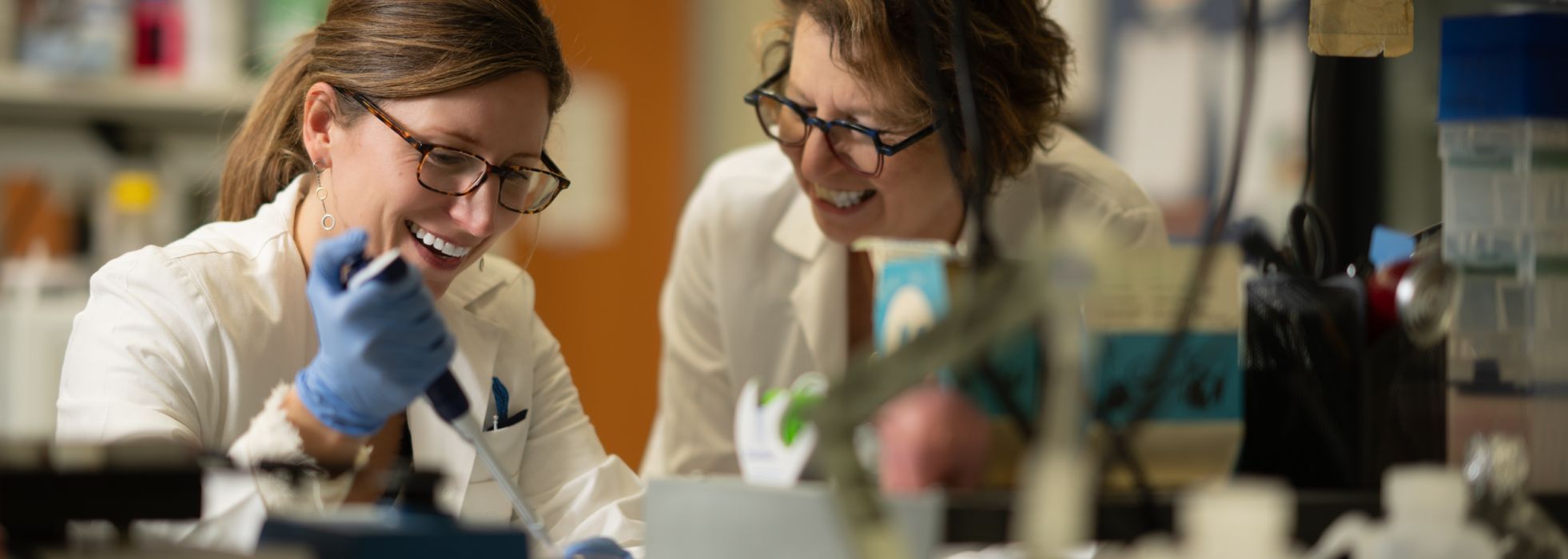Acute Lung Injury Research
Lynn M. Schnapp, MD, is an established National Institutes of Health-funded investigator in cell and molecular biology, and a pulmonologist and critical care physician with expertise in lung injury and repair.
Her research uses unique animal models and donated human tissues to identify cells and pathways that may be potential targets for development of new therapies.

Identifying Novel Pathways in Lung Disease
Dr. Schnapp’s lab investigates the processes that govern acute lung injury and its resolution. The team’s major focus is to study how scar tissue forms during lung injury and chronic diseases that damage lung function, such as idiopathic pulmonary fibrosis.
In experiments using both mice and human lung tissue, her team has shown that pericytes, cells that normally associate with blood vessels, play key roles in lung inflammation and scarring.
The Function of Pericytes in Lung Diseases
The lab is also investigating the link between HIV infection and development of emphysema, and has demonstrated that pericytes are a likely reservoir for the virus in the lung.
A better understanding of the function of pericytes in lung diseases could lead to new treatments.
Image: Cells that are positive for the pericyte marker PDGFR-beta (green) are isolated and cultured from donated human lung tissue and used for experiments. Nuclei are stained blue.

Research Team

Research Program Director

Research Specialist

There are opportunities for motivated individuals in the Schnapp Lab! We are currently seeking undergraduates, graduate students and postdocs interested in laboratory research in lung disease using patient samples and animal models.
If you are interested in joining the group, please send your CV and a brief description of your research experience and interests to Dr. Schnapp.
Active Projects
- Mode of Injury as a Determinant of Pericyte Fate in Lung Fibrosis
Pulmonary fibrosis is characterized by abnormal deposition of extracellular matrix by myofibroblasts. We hypothesize that the earliest myofibroblast progenitors are pericytes in hematogenous-delivered injury, while they are fibroblasts in airway-delivered injury. The goal of this project is to test this hypothesis, as understanding the determinants of myofibroblast progenitors may allow for future precision medicine approaches.
- Effect of HIV Infection on Lung Pericyte Function
Our group has demonstrated that lung pericytes in both humans and non-human primates are targets for the immunodeficiency viruses HIV and SIV, respectively. Our aim is to determine what effect that infection of these cells has on their normal function.
- Role of uPARAP in Lung Fibroblasts
Urokinase-plasminogen activator receptor-associated protein (uPARAP) is a key collagen uptake receptor on mesenchymal cells, and uPARAP-deficient mice have stiffer lungs than wild-type. However, RNA-seq analysis has shown that genes involved in the cell cycle are altered in uPARAP knockout lung fibroblasts. The goal of this project is to characterize this phenotype and to assess if it contributes to increased lung stiffness in the knockout mouse.
Funding Support
Dr. Schnapp’s research is funded by the United States Department of Defense, the Wisconsin Partnership Program Collaborative Health Sciences Program, and the National Institutes of Health/National Heart, Lung and Blood Institute.

